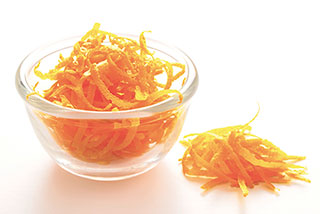Can pectin minimize side effects associated with radiation therapy, and how is it able to do so? I have seen several articles that state it does, but how much is necessary to take and how does it work? — Barry A. Cochran
Citrus pectin is an indigestible natural fiber that is found in the peel and rind of citrus fruits. As a result of citrus pectin’s large size and molecular weight, it is said to benefit the digestive tract and effectively maintain intestinal balance by cleansing the GI tract. Since it is indigestible and unabsorbed by the GI tract, the pectin forms a gel, bulks up, helps to flush out waste, and eliminates toxins from the intestines and colon.
Citrus pectin is also thought to slow the absorption of foods after meals. Consequently, it is believed to control blood glucose levels by slowing the absorption of dietary sugar. Thus, it may be beneficial in the treatment of diabetes. Citrus pectin also shows some promise in the fight against cancer, but there are no randomized studies on dosage and any interactions that this may have. Though the FDA has not evaluated the use of pectin, literature from natural herbal sites suggests taking one to two capsules twice a day with meals.
Certain people may be allergic to it and experience itching or a rash. Pectin may also decrease absorption of minerals such as zinc, copper, iron, calcium, and magnesium if used together. It may also cause GI symptoms such as flatulence, cramps, and diarrhea. — K. Lynne Quinn, RN, MSN, CRNP, AOCNP
